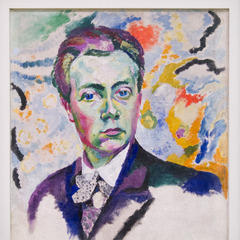Ramakrishna Quotes - Page 3
Ramakrishna (1960). “Sayings: The Most Exhaustive Collection of Them, Their Number Being 1120”
Ramakrishna (1965). “Sayings of Sri Ramakrishna: the most exhaustive collection of them, their number being 1120”
Ramakrishna (1960). “Sayings: The Most Exhaustive Collection of Them, Their Number Being 1120”
Ramakrishna (1965). “Sayings of Sri Ramakrishna: the most exhaustive collection of them, their number being 1120”
The tree laden with fruits always bends low. If you wish to be great, be lowly and meek.
Ramakrishna (1960). “Sayings: The Most Exhaustive Collection of Them, Their Number Being 1120”
"Sayings of Sri Ramakrishna", p. 233, 1960.
Who is whose Guru? God alone is the guide and Guru of the universe.
Ramakrishna (1916). “Sayings of Sri Ramakrishna: the most exhaustive collection of the sacred and inspired utterances of Bhagavan Sri Ramakrishna”
"Ramakrishna and His Disciples". Book by Christopher Isherwood, 1965.
"The Gospel of Sri Ramakrishna". Book by Sri Ramakrishna, translated by Swami Nikhilananda, Vol. 1 and Vol. 2, p. 818, 1942.
One must be very particular about telling the truth. Through truth one can realize God.
Ramakrishna (1960). “Sayings: The Most Exhaustive Collection of Them, Their Number Being 1120”
Finish the few duties you have at hand, and then you will have peace.
Ramakrishna, Mahendra Nath Gupta (1942). “The Gospel of Sri Ramakrishna”, Ramakrishna Vivekanada Center
Ramakrishna (1960). “Sayings: The Most Exhaustive Collection of Them, Their Number Being 1120”
Unalloyed love of God is the essential thing. All else is unreal.
Ramakrishna, Mahendra Nath Gupta (1942). “The Gospel of Sri Ramakrishna”, Ramakrishna Vivekanada Center
Ramakrishna (1960). “Sayings: The Most Exhaustive Collection of Them, Their Number Being 1120”
Ramakrishna, Mahendra Nath Gupta (1942). “The Gospel of Sri Ramakrishna”, Ramakrishna Vivekanada Center
Ramakrishna, Mahendra Nath Gupta (1942). “The Gospel of Sri Ramakrishna”, Ramakrishna Vivekanada Center
"Râmakrishna : His Life and Sayings". Edited by Friedrich Max Müller, 1898.







